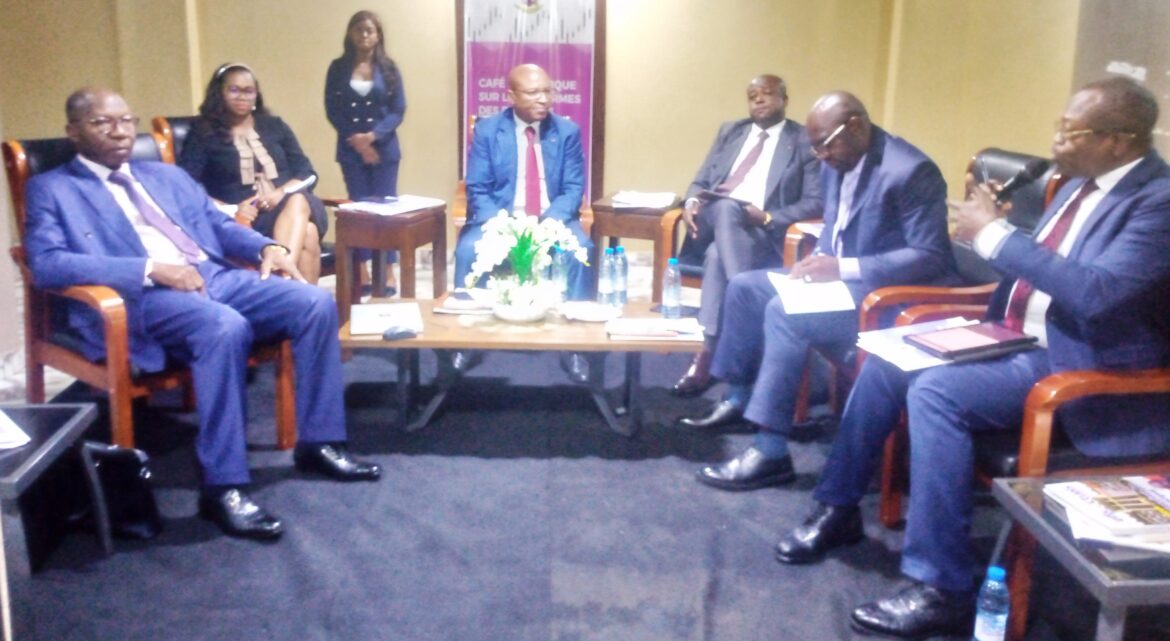Experts briefing economic journalists on the progress of CIEP
By Yerima Kini Nsom & Nformi Sonde Kinsai
Experts have enlightened economic journalists on the innovation, improvements in the management and administration of public funds starting from the 2007 financial regime of the state. The journalists were briefed during a discussion forum that brought together finance experts and journalists to Mbankomo in the outskirts of Yaounde on Tuesday, August 5.
The briefing was hinged on the lessons gained from the 2025 session of the Interministerial Programme Review Committee, popularly known by its French acronym CIEP that was created by a decree of the Prime Minister on June 30, 2021.
While presenting a paper on the origin and evolution of public finance management reforms, one of the experts, Madam Boumsong Sophie, said the various programmes are tailored to ensure the judicious use of public finances in order to stimulate public development. Boumsong, who is the Head of the Reform Division at the Ministry of Finance, MINFI told journalists that CIEP was created to ensure the evaluation, transparency and accountability in the use of Public finances as well as ensure compliance with the law.
She said the Committee meets every three years to evaluate the efficacy of the public policies in order to better assess its performance within the framework of the programme budget.
For his part, the Head of the Studies and Budgetary Norms at the Department of the Budget at the Ministry of Finance, Dr. Abe Mirabeau, harped on the elaboration manual of the budget programme that came into play in January 2013. He equally explained the intricacies of the new format of the Annual Performance Project. He highlighted the strategic orientations based on objectives and indicators for 2026-2028 as instituted by the MINFI circular of September 2024.
On his part, Joseph Tedou spoke on the importance of statistics in the performance of the programme. He expounded on the role of statistics in planning and in the evaluation of public performance. He said each administration must have a statistical book. He lengthily drilled media practitioners on the importance of statistics in the definition of objectives and performance indicators in the determination of targets as well as its attenuation of budgetary risks.
The Head of Division for Prospective and Strategic Planning in MINEPAT, Ernest Nnanga in his presentation questioned the “evaluation of public policies for what incidence on the citizens?” He spoke and narrowed down to the final objective of public policies that must respond to transparency and accountability towards the citizens especially on the evaluation of public investment projects. He equally highlighted the socio-economic incidence that gears at ensuring efficient service provision that must be demonstrated by improvement in quality services.
According to the Executive President of the National Platform of Civil Society Organisations of Cameroon, PLANOSCAM, Samuel Biroki who spoke on the perception of involvement of Civil Society in CIEP, recalled the role such organisations play in the management of public finances in general and what transpired during the last session of CIEP in particular.
Apart from bringing to the fore progress made by the involvement of civil society in the different phases of processes of budgetary preparation, he equally brought out what they think should be done by the administration including an improvement in follow-up and evaluation between the sessions as well as a fluid and regular communication on the programmes.
Speaking to reporters, Joseph Tedou said statistics is data and if one wants to know his/her rich results, one needs to be in possession of statistics to better appreciate the situation. He noted that the importance borders on the fact that data keeps one informed; enables a good understanding of indicators and enhances decision making based on such.
“To transform statistics into knowledge, not only for journalists and media professionals as a whole, but it is essential to government services, civil society organisations, researchers, and so on. That is the reason why it is very important to have reliable and relevant statistics to make sure that we have the same understanding of the situation and the same appreciation of the performance. Even though we may not agree, but we must have the same understanding. That is why statistics is very important,” he maintained.

